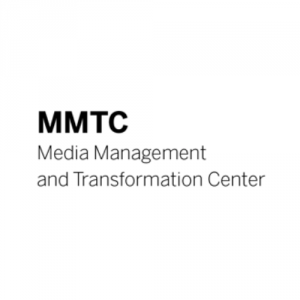Media Management and Transformation Centre (MMTC) at JIBS
How Small Businesses in the Metal Industry Can Tackle Sustainability Challenges
Global supply chains, particularly in high-risk sectors like metals, are responsible for serious social and environmental issues, from forced labor to pollution. Voluntary actions by companies haven’t made a big enough difference, leading to the introduction of laws like the Corporate Sustainability Due Diligence Directive (CSDDD). While these laws mainly target large corporations, small and medium-sized enterprises (SMEs) are key players in the supply chain and need to keep up.

Photo by Christopher Burns on Unsplash
This blog post is based on a winning thesis from the MMTC Thesis Award 2024, written by Debora Ebinger and Moa Gunnarsson. Their research provides valuable insights into how small businesses can navigate the growing pressures of supply chain sustainability in the metal industry.
So how can small businesses in the metal industry do their part to improve sustainability and meet these growing demands? That’s exactly what a recent Masters thesis study focused on – using SMEs in the metal industry from the GGVV-region (a Swedish industrial hub) as a study, the authors explored how SMEs address sustainability challenges, adapt to new regulations, and improve their accountability.
Key Conditions for Success
To effectively implement Supply Chain Due Diligence, SMEs need to focus on three key areas: governance, strategic alignment, and infrastructure.
- Governance: Effective governance ensures that sustainability is integrated into all parts of the business, driven by strong leadership and clear responsibilities across the organization.
- Strategic alignment: For SMEs, sustainability must be tied to their overall business goals. This means using performance indicators and strategies that address both risk and long-term objectives.
- Infrastructure: SMEs need internal tools and systems to manage sustainability, but collaboration with external partners and suppliers is just as important. By sharing knowledge and best practices, they can collectively navigate the regulatory landscape.
The Biggest Challenges for SMEs
Despite the growing demand for sustainability, SMEs in the metal industry face significant obstacles.
- Lack of resources and knowledge: Many SMEs simply don’t have the money or in-house expertise to develop and implement the necessary sustainable practices. Without this, it’s tough to keep up with new regulations or even know where to start.
- Limited top management support: Without backing from senior leadership, sustainability initiatives can’t take off. In companies where top management doesn’t see sustainability as a priority or competitive advantage, fewer resources are allocated to these efforts.
- Regulatory pressure: New laws require SMEs to provide detailed information about their supply chains. This creates additional pressure to gather data and increase transparency—tasks that can be overwhelming without proper systems in place.
How Can SMEs Overcome These Challenges?
While the challenges are significant, SMEs can overcome them by making a few key changes.
- Engage top management: Leadership must view sustainability as a competitive advantage. This ensures that the business allocates sufficient resources to sustainability initiatives.
- Seek external support: SMEs should consider hiring consultants or joining regional networks to gain the expertise they lack in-house. These external resources can help SMEs stay updated on regulations and collaborate with other companies to share knowledge.
- Leverage networks: By joining industry networks, SMEs can share best practices and gain easier access to the tools and information they need to meet regulatory demands. Collaboration can also make performance management more efficient.
Conclusion
SMEs in the metal industry, have their work cut out for them when it comes to improving sustainability in their supply chains. But by focusing on good governance, aligning sustainability with their business strategy, and seeking external help, they can overcome these challenges. Doing so will not only help them comply with upcoming regulations but also make them more competitive in an increasingly sustainability-driven market.
- Coordinator
Lecturer Business Administration - Jönköping International Business School
- philippajoy.berglund@ju.se
- +46 36-10 1945
Detta är en bloggtext. Det är skribenten som står för åsikterna som förs fram i texten, inte Jönköping University.



.png)
.jpg)
